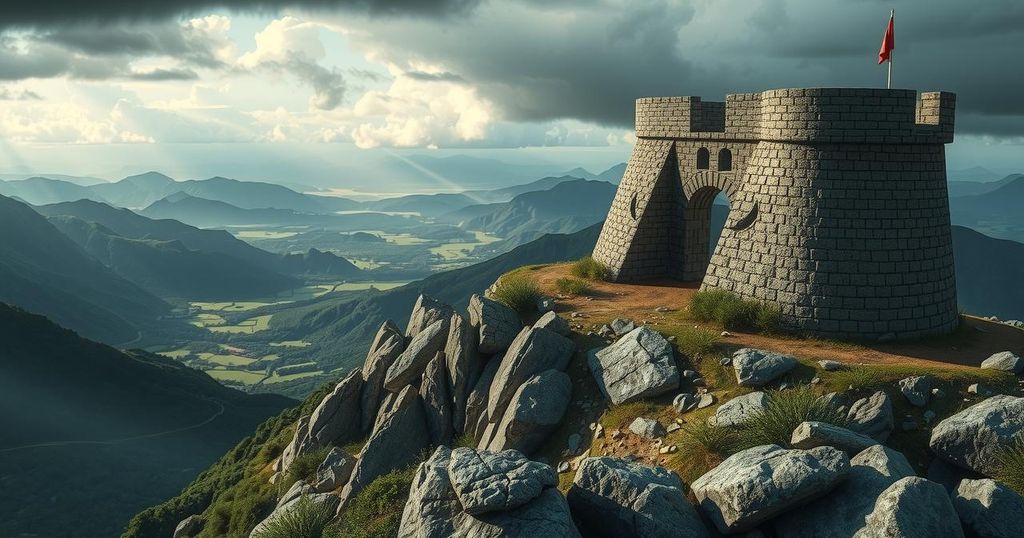World news
” BISIMWA, AFP, AFRICA, AL JAZEERA, BERTRAND BISIMWA, CIVIL WAR, CONGO (KINSHASA), DEMOCRATIC REPUBLIC OF THE CONGO, DRC, FELIX TSHISEKEDI, GO, GOMA, HUMANITARIAN, HUMANITARIAN CRISIS, KATOYI, KENYA, KIBWE, KINSHASA, M23, MABANGA, MAJENGO, MALCOLM WEBB, MILITARY, RWANDA, SEXUAL VIOLENCE, TURUNGA, US, VINCENT KAREGA, WAR
Sofia Rodriguez
0 Comments
M23 Rebels Intensify Control over Goma, DRC
M23 rebels, backed by Rwanda, have seized control of Goma in the DRC, causing significant casualties and worsening the humanitarian crisis. Despite a reduction in urban fighting, surrounding areas remain tense. International calls for a ceasefire are increasing, amidst fears of wider regional destabilization. Immediate diplomatic action is necessary to prevent further escalation and address humanitarian needs in Goma.
The Rwanda-backed M23 rebel group has significantly strengthened its hold over Goma, the largest city in eastern Democratic Republic of the Congo (DRC). Following the rebels’ entry on Sunday and subsequent claims of control, violent clashes with Congolese armed forces have resulted in over 100 fatalities and nearly 1,000 injuries. The situation marks a troubling escalation in a long-standing conflict that has caused extensive human suffering and displacement.
Although fighting has reduced in Goma city, sporadic gunfire continues in some northern areas, indicating a tense atmosphere. Bertrand Bisimwa, head of M23’s political wing, asserted the group is working to eliminate remaining threats in Goma. Residents report the M23 and Rwandan troops are now controlling vital city areas, including the airport.
Rwanda’s ambassador to the region confirmed that the M23 offensive would continue southwards into South Kivu province, suggesting that Goma would not be the final target. As international observers noted M23 fighters advancing towards Bukavu, the humanitarian crisis in Goma became increasingly alarming, with warnings of potential mass displacement and food shortages from various aid organizations.
Doctors Without Borders reported severe constraints on medical facilities in Goma, with incidents of armed attacks disrupting their operations. The International Committee of the Red Cross has also highlighted the dire circumstances faced by civilians, emphasizing the urgent need for humanitarian assistance and respect for international humanitarian standards amid the conflict.
The ongoing violence has led to international calls for a ceasefire, with diplomatic efforts underway to mitigate the situation. US Secretary of State Marco Rubio expressed the necessity for immediate cessation of hostilities during discussions with Rwandan President Paul Kagame. However, President Felix Tshisekedi of the DRC declined to participate in a scheduled emergency meeting with Kagame, opting instead to address the nation directly.
Analysts warn that if unaddressed, the escalating conflict could destabilize the broader Great Lakes region. The International Crisis Group has advocated for negotiation, suggesting a withdrawal of M23 from Goma and the establishment of a temporary administrative framework under the East African Community to facilitate peace discussions.
The ongoing conflict in eastern DRC has profound implications for regional stability and humanitarian affairs. The resurgence of the M23 rebel group, accused of being supported by Rwanda, has reignited tensions that were previously quelled following international interventions. Goma, a strategic city, has become a focal point in the violence, raising alarms about the humanitarian impact on civilians caught in the crossfire, including health crises and potential mass displacements. The international community is deeply concerned, urging immediate action to prevent a wider escalation of conflict.
The current situation in Goma highlights the complexities of regional conflicts influenced by historical grievances and external interventions. With the M23 rebelling robustly and international attention growing, it is crucial to adopt diplomatic measures that prioritize humanitarian needs and seek lasting peace through negotiations. As the humanitarian crisis unfolds, the urgent requirement for effective response mechanisms becomes increasingly apparent, necessitating cooperation from all parties involved.
Original Source: www.aljazeera.com




Post Comment